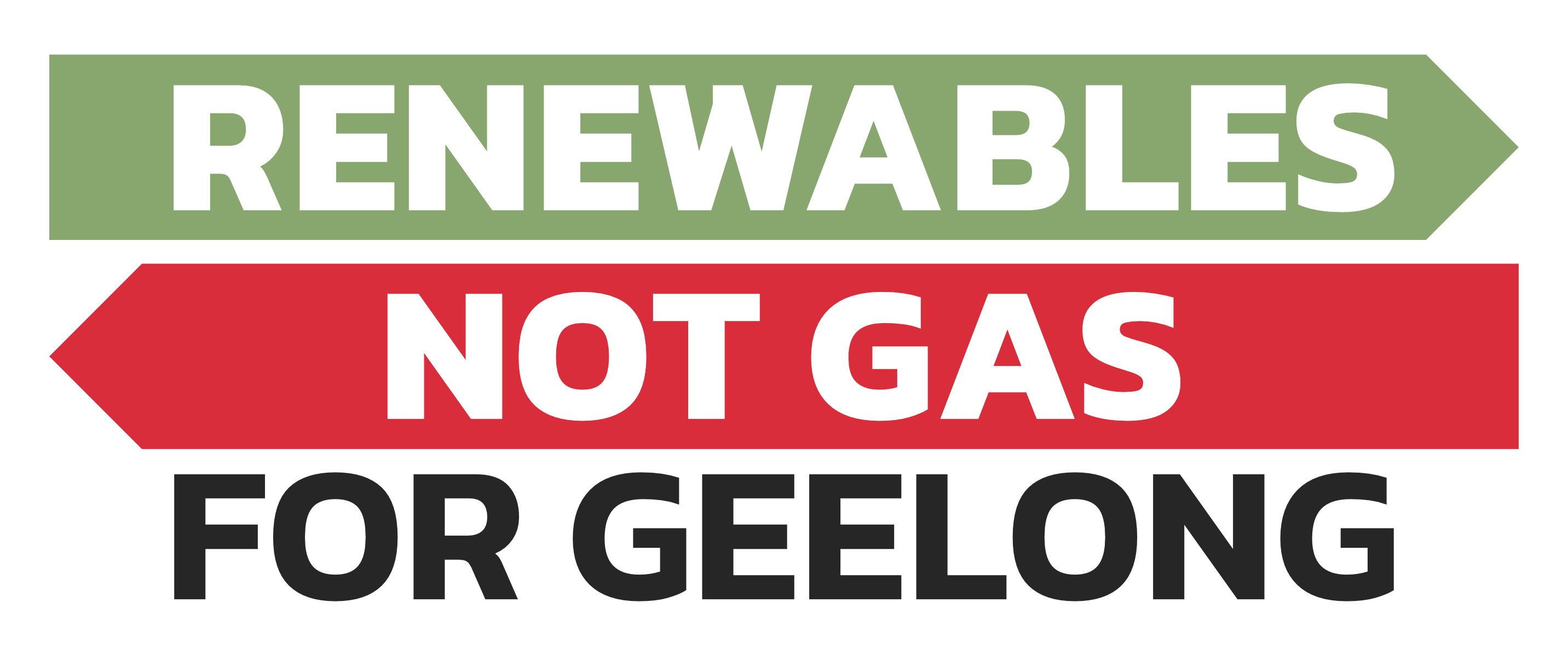ACF Community Geelong and Geelong Sustainability have tabled the results of a research project which, with coordinated planning in government, would see the creation in the greater Geelong region of more than 24,000 new jobs in in various sectors ranging from building retrofits, renewable energy generation, manufacturing and electric transport in the next five years.
The jobs will be created in the local government areas of the City of Greater Geelong, the Borough of Queenscliffe, Golden Plains Shire, Surf Coast Shire and Colac Otway Shire.
The project’s consultants concluded:
- Setting ambitious zero emissions targets will drive investment and opportunity to the region
- Coordinated local, regional, and state government planning will support the transition to a zero emissions environment
- Emissions from all sectors (energy, transport, land use, waste, and industry) need to be considered
- The Geelong region is well placed to advocate for resources from the state and federal governments to realise these opportunities.
The project- The Roadmap to Zero Emissions: Job Analysis for the Geelong Region– was undertaken by Ironbark Sustainability, a national consultancy that works with councils and their communities to reduce greenhouse emissions, tackle climate change, and implement sustainability projects and programs.
The Geelong project is the first in Australia to employ a new form of analysis to determine how many jobs could be created if policy and investment was targeted towards reducing emissions if the region joined the race to net zero.
A cross-section of organisations including the Geelong Trades Hall, Victorian Trades Hall, Committee for Geelong, Geelong Manufacturing Council, RACV Solar and G21, which represents the five local government areas, were briefed recently on the Ironbark Sustainability report before its public release.
President of Geelong Sustainability, Vicki Perrett said “we want Geelong to capture the economic opportunities from repositioning itself to benefit from a world in rapid transition. Around our region there are many exciting innovations from renewable installations, rooftop solar, community power hubs, wind farms, the Big Battery, and the circular economy. The time is now for us to work together to speed up and scale up the transition and realise the net zero jobs potential over the next five years.
“More than fifty percent of the 24,000 jobs are in two sectors, building and construction and renewable energy and its transmission. The balance will be found in electric buses and green transport, cleantech manufacturing, recycling and the circular economy and land use.”
Sally Fisher of ACF Community Geelong further endorsed the need for a co-ordinated approach at all levels of government.
“The climate science is irrefutable so we must now make the transition to a decarbonised environment as smooth as possible to help create jobs on the ground and to help ensure Geelong’s economy is positioned for a zero emissions era.”
The job numbers are calculated using the total national job numbers determined in the Beyond Zero Emissions Million Jobs Plan (MJP). These national job numbers have been allocated to each local government area in Australia according to the relative capacity of each area to provide these jobs.
The allocation is determined using a range of factors from 2016 Australian Bureau of Statistics census data including population, the SEIFA index of socio-economic disadvantage, labour force, participation rate, job hours per capita and per worker and proximity to renewable energy, transportation, re-vegetation and industrial zones.
A formula using these factors was developed to distribute the total number MJP jobs to each local government area. The report provides information for the LGA’s in the Geelong region. See the attached tables.
You can read the report here
| Sector | Ongoing job years | Temporary job years | Zero Emissions job years |
|---|---|---|---|
| Buildings (Social Housing) | 2496 | 9924 | 12420 |
| Renewables | 1814 | 3168 | 4982 |
| Transport | 1577 | 342 | 1919 |
| Cleantech manufacturing | 1708 | 131 | 1839 |
| Land Use | 1752 | 0 | 1752 |
| Recycling and circular economy | 1003 | 0 | 1003 |
| Education, training and research | 111 | 0 | 111 |
| Total | 10461 | 13565 | 24027 |

